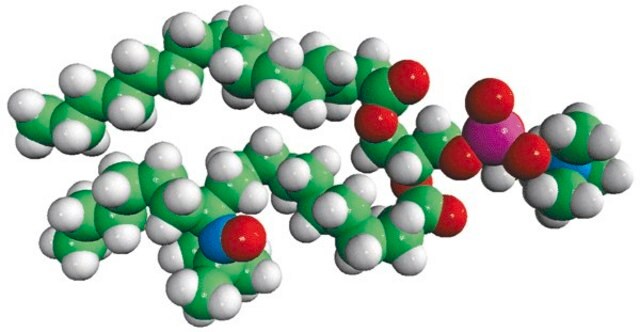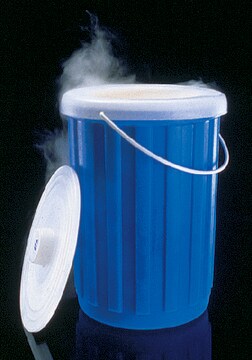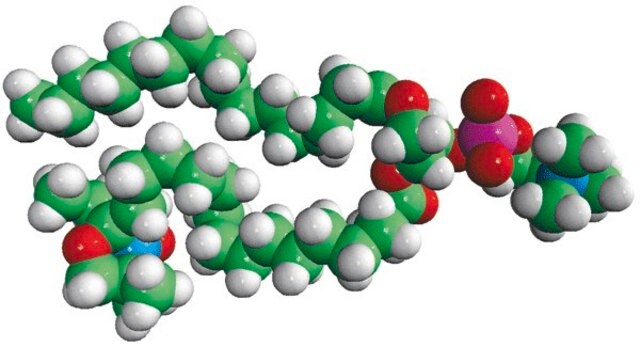810601C
Avanti
16:0-5 Doxyl PC
Avanti Research™ - A Croda Brand 810601C
Sinónimos:
1-palmitoyl-2-stearoyl-(5-doxyl)-sn-glycero-3-phosphocholine
About This Item
Productos recomendados
Análisis
>99% (TLC)
formulario
liquid
envase
pkg of 1 × 1 mL (810601C-1mg)
fabricante / nombre comercial
Avanti Research™ - A Croda Brand 810601C
concentración
1 mg/mL (810601C-1mg)
tipo de lípido
ESR probes
phospholipids
Condiciones de envío
dry ice
temp. de almacenamiento
−20°C
Categorías relacionadas
Descripción general
Aplicación
- as a component in virus-like large unilamellar vesicles (VL LUVs) to quench 4-chloro-7-nitrobenz-2-oxa-1,3-diazole (NBD) fluorescence emission
- in the preparation of multi-lamellar vesicles (MLVs) as a site-specific quencher to perform fluorescence quenching studies
- in the preparation of spin-labelled multi-lamellar vesicles (MLVs)
Acciones bioquímicas o fisiológicas
Envase
Nota de preparación
Información legal
Palabra de señalización
Danger
Frases de peligro
Consejos de prudencia
Clasificaciones de peligro
Acute Tox. 3 Inhalation - Acute Tox. 4 Oral - Aquatic Chronic 3 - Carc. 2 - Eye Irrit. 2 - Repr. 2 - Skin Irrit. 2 - STOT RE 1 - STOT SE 3
Órganos de actuación
Central nervous system, Liver,Kidney
Clase de riesgo para el agua (WGK)
WGK 3
Certificados de análisis (COA)
Busque Certificados de análisis (COA) introduciendo el número de lote del producto. Los números de lote se encuentran en la etiqueta del producto después de las palabras «Lot» o «Batch»
¿Ya tiene este producto?
Encuentre la documentación para los productos que ha comprado recientemente en la Biblioteca de documentos.
Nuestro equipo de científicos tiene experiencia en todas las áreas de investigación: Ciencias de la vida, Ciencia de los materiales, Síntesis química, Cromatografía, Analítica y muchas otras.
Póngase en contacto con el Servicio técnico










